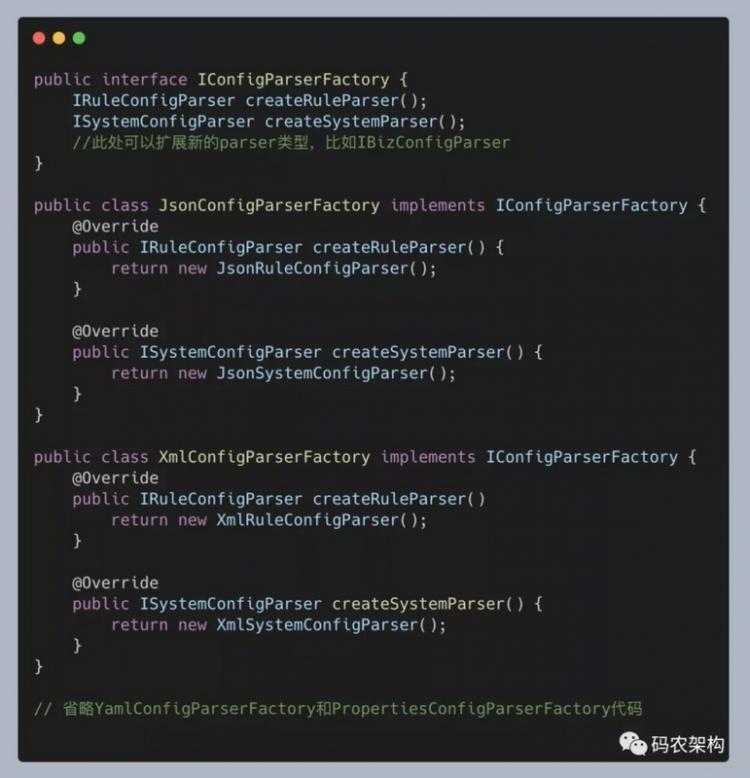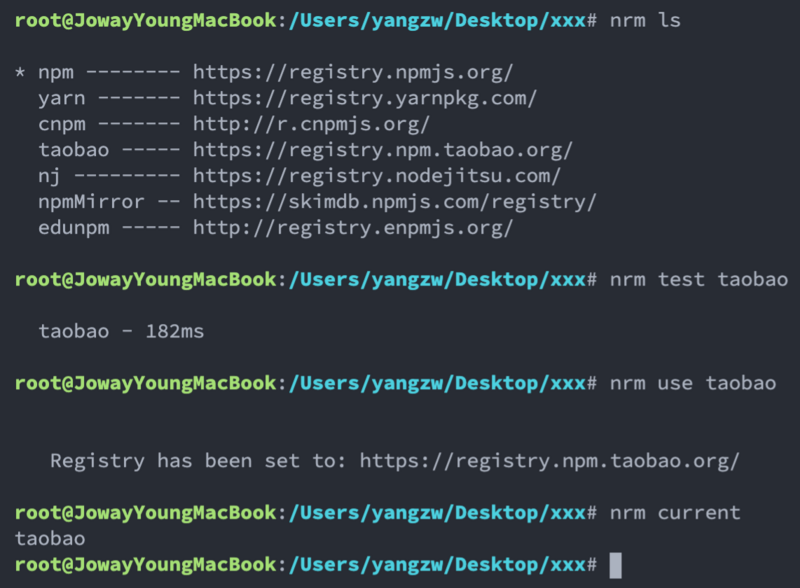聊聊puma的Parser

序
本文主要研究一下puma的Parser
Parser
puma/puma/src/main/java/com/dianping/puma/parser/Parser.java
public interface Parser extends LifeCycle { BinlogEvent parse(ByteBuffer buf, PumaContext context) throws IOException;
}
- Parser继承了LifeCycle接口,它定义了parse方法,解析ByteBuffer到BinlogEvent
DefaultBinlogParser
puma/puma/src/main/java/com/dianping/puma/parser/DefaultBinlogParser.java
@ThreadSafepublic class DefaultBinlogParser implements Parser {
private final Logger logger = LoggerFactory.getLogger(DefaultBinlogParser.class);
private static Map<Byte, Class<? extends BinlogEvent>> eventMaps = new ConcurrentHashMap<Byte, Class<? extends BinlogEvent>>();
@Override
public BinlogEvent parse(ByteBuffer buf, PumaContext context) throws IOException {
logger.debug("
");
logger.debug("****************************** binlog parse begin ******************************");
BinlogHeader header = new BinlogHeader();
header.parse(buf, context);
logger.debug("binlog event header:
");
logger.debug("{}", header);
BinlogEvent event = null;
Class<? extends BinlogEvent> eventClass = eventMaps.get(header.getEventType());
if (eventClass != null) {
try {
event = eventClass.newInstance();
} catch (Exception e) {
logger.error("Init event class failed. eventType: " + header.getEventType(), e);
event = null;
}
}
if (event == null) {
event = new PumaIgnoreEvent();
}
logger.debug("binlog event type:
");
logger.debug("{}", event.getClass());
event.parse(buf, context, header);
logger.debug("binlog event:
");
logger.debug("{}", event);
logger.debug("****************************** binlog parse end ******************************");
logger.debug("
");
return event;
}
/*
* (non-Javadoc)
*
* @see com.dianping.puma.common.LifeCycle#start()
*/
@Override
public void start() {
eventMaps.put(BinlogConstants.UNKNOWN_EVENT, UnknownEvent.class);
eventMaps.put(BinlogConstants.QUERY_EVENT, QueryEvent.class);
eventMaps.put(BinlogConstants.STOP_EVENT, StopEvent.class);
eventMaps.put(BinlogConstants.ROTATE_EVENT, RotateEvent.class);
eventMaps.put(BinlogConstants.INTVAR_EVENT, IntVarEvent.class);
eventMaps.put(BinlogConstants.RAND_EVENT, RandEvent.class);
eventMaps.put(BinlogConstants.USER_VAR_EVENT, UserVarEvent.class);
eventMaps.put(BinlogConstants.FORMAT_DESCRIPTION_EVENT, FormatDescriptionEvent.class);
eventMaps.put(BinlogConstants.XID_EVENT, XIDEvent.class);
eventMaps.put(BinlogConstants.TABLE_MAP_EVENT, TableMapEvent.class);
eventMaps.put(BinlogConstants.WRITE_ROWS_EVENT_V1, WriteRowsEvent.class);
eventMaps.put(BinlogConstants.UPDATE_ROWS_EVENT_V1, UpdateRowsEvent.class);
eventMaps.put(BinlogConstants.DELETE_ROWS_EVENT_V1, DeleteRowsEvent.class);
eventMaps.put(BinlogConstants.INCIDENT_EVENT, IncidentEvent.class);
//mysql --5.6
eventMaps.put(BinlogConstants.WRITE_ROWS_EVENT, WriteRowsEvent.class);
eventMaps.put(BinlogConstants.UPDATE_ROWS_EVENT, UpdateRowsEvent.class);
eventMaps.put(BinlogConstants.DELETE_ROWS_EVENT, DeleteRowsEvent.class);
eventMaps.put(BinlogConstants.HEARTBEAT_LOG_EVENT, HeartbeatEvent.class);
eventMaps.put(BinlogConstants.IGNORABLE_LOG_EVENT, IgnorableEvent.class);
eventMaps.put(BinlogConstants.ROWS_QUERY_LOG_EVENT, RowsQueryEvent.class);
eventMaps.put(BinlogConstants.GTID_LOG_EVENT, GtidEvent.class);
eventMaps.put(BinlogConstants.ANONYMOUS_GTID_LOG_EVENT, AnonymousGtidEvent.class);
eventMaps.put(BinlogConstants.PREVIOUS_GTIDS_LOG_EVENT, PreviousGtidsEvent.class);
}
@Override
public void stop() {
}
}
- DefaultBinlogParser实现了Parser接口,其parse方法通过header.getEventType()先实例化对应的BinlogEvent,然后通过event.parse(buf, context, header)进行解析
BinlogEvent
puma/puma/src/main/java/com/dianping/puma/parser/mysql/event/BinlogEvent.java
public interface BinlogEvent extends Serializable { BinlogHeader getHeader();
void setHeader(BinlogHeader header);
void parse(ByteBuffer buf, PumaContext context, BinlogHeader header) throws IOException;
}
- BinlogEvent接口定义了getHeader、setHeader、parse方法
AbstractBinlogEvent
puma/puma/src/main/java/com/dianping/puma/parser/mysql/event/AbstractBinlogEvent.java
public abstract class AbstractBinlogEvent implements BinlogEvent { private static final long serialVersionUID = -8136236885229956889L;
private BinlogHeader header;
private int checksumAlg = BinlogConstants.CHECKSUM_ALG_OFF;
private long crc;
@Override
public void parse(ByteBuffer buf, PumaContext context, BinlogHeader header) throws IOException {
this.header = header;
doParse(buf, context);
if (!(this.header.getEventType() == BinlogConstants.ROTATE_EVENT)) {
checksumAlg = context.getChecksumAlg(); // fetch checksum alg
parseCheckSum(buf);
}
}
@Override
public BinlogHeader getHeader() {
return header;
}
@Override
public void setHeader(BinlogHeader header) {
this.header = header;
}
public abstract void doParse(ByteBuffer buf, PumaContext context) throws IOException;
private void parseCheckSum(ByteBuffer buf) {
if (checksumAlg != BinlogConstants.CHECKSUM_ALG_OFF && checksumAlg != BinlogConstants.CHECKSUM_ALG_UNDEF) {
buf.position((int) (this.header.getEventLength() - 4));
setCrc(PacketUtils.readLong(buf, 4));
}
}
@Override public String toString() {
return new ToStringBuilder(this)
.append("header", header)
.append("checksumAlg", checksumAlg)
.append("crc", crc)
.toString();
}
public void setChecksumAlg(int checksumAlg) {
this.checksumAlg = checksumAlg;
}
public int getChecksumAlg() {
return checksumAlg;
}
public long getCrc() {
return crc;
}
public void setCrc(long crc) {
this.crc = crc;
}
public boolean isRemaining(ByteBuffer buf, PumaContext context) {
return context.isCheckSum() ? buf.remaining() - 4 > 0 : buf.hasRemaining();
}
public int lenRemaining(ByteBuffer buf, PumaContext context) {
return context.isCheckSum() ? buf.remaining() - 4 : buf.remaining();
}
}
- AbstractBinlogEvent声明实现了BinlogEvent接口,其parse方法会调用doParse方法,之后对于非ROTATE_EVENT会执行parseCheckSum
小结
Parser继承了LifeCycle接口,它定义了parse方法,解析ByteBuffer到BinlogEvent;DefaultBinlogParser实现了Parser接口,其parse方法通过header.getEventType()先实例化对应的BinlogEvent,然后通过event.parse(buf, context, header)进行解析
doc
- Parser
以上是 聊聊puma的Parser 的全部内容, 来源链接: utcz.com/z/517070.html







